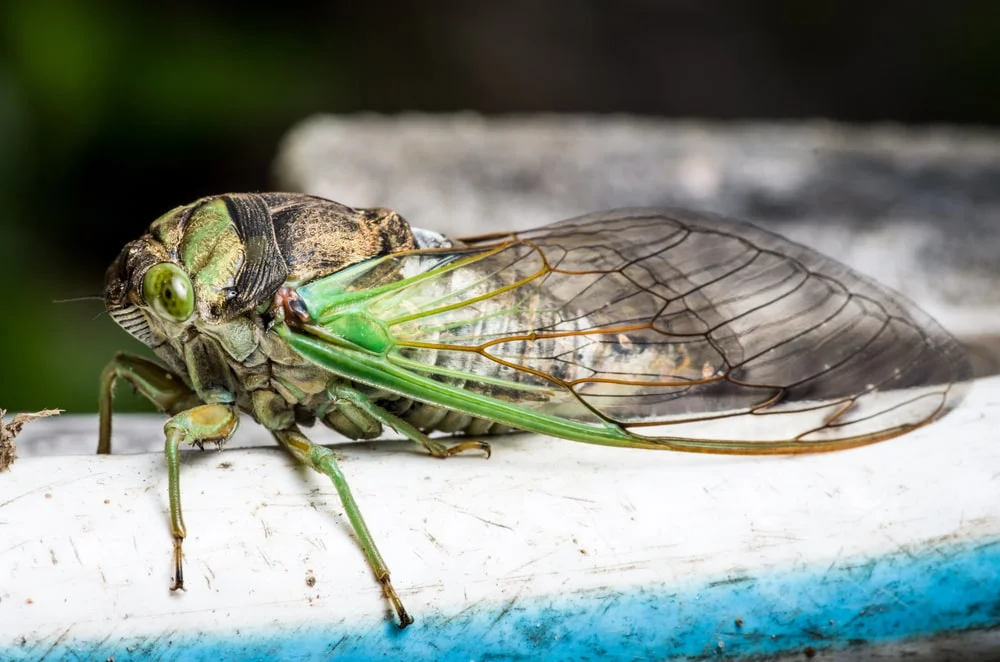PET CARE
After almost two decades underground, Cicadas are now working their way to the surface where, for about a month, they will begin to molt, mate, and lay eggs.
As you get outside and enjoy the warmer weather with your pets in the coming weeks, what actions should you take to keep your pets safe if you happen to come across Cicadas? Keep reading as we discuss pet safety, what to watch for, and where these Cicadas can be found.
Are Cicadas Dangerous to Pets?
The good news is that cicadas do not bite or sting and they are not toxic.
These insects will typically stay outside and will not invade your home. However, when the soil temperature reaches the mid-60ºs Fahrenheit, dogs can hear something we cannot: young cicadas tunneling underground and getting ready for flight.
If Fido digs, he may encounter one of these insects, so what should pet parents know?
Should your dog or cat attempt to ingest Cicadas, problems including choking on stiff cicada wings or hard exoskeleton could result in abdominal pain, vomiting, bloody diarrhea, and severe stomach upset.
How to Recognize a Cicada
Cicadas have six legs and antennas that are about 1-2” long and sing a love song (in hopes of attracting females of their species) that can reach about 100 decibels.
Periodical Cicadas, as Brood X are classified, are easy to differentiate from the more than 3,000 species of annual Cicadas seen yearly. Those seen yearly are typically black and green while the those classified as Brood X have striking black bodies, orange wing veins, and red eyes.
These insects will feed on the juice and sap of tree roots, typically causing minimal damage to the plants. While underground, cicada nymphs aerate the soil by constructing tunnels which allow tree roots to gain better access to nutrients and oxygen.
They also serve as meals for many creatures: birds, spiders and snakes find them a delicacy. Humans have also been known to use them as fishing bait and to eat them as well!
What is a Pet Parent to do?
Keeping your Dogs Safe
While Cicadas are out in full force, consider keeping your dog on a leash and teach and enforce the “leave it” command. Redirect your dog’s attention away from the insects with a positive reinforcement like a toy, treat, or other fun time spent with you.
Remember, you must always be the most interesting thing to your dog. If you have a pet who consumes everything in sight, you may have to be their constant companion outside for a couple months. Just make sure you are supervising if cicadas inhabit your area.
Keeping Your Felines Safe
To keep your felines safe during this time, consider keeping them indoors or in an enclosed area away from the Cicadas. If they do make their way outdoors for some fresh air, consider staying with them to supervise during that time.
Stay aware of your surroundings
Cicadas do not fly very well and may even fly into you or your pet. Typically, cicadas fall to the ground or land on plants and trees making them accessible to curious dogs and cats.
If your pet consumes these insects, they may require pain medications, anti-nausea drugs, intravenous fluids, and gastro-protectant medications to protect and heal the mucous lining from bleeding and irritation. In that event, having an active pet insurance policy may be able to help.
Nothing in this article should be construed as financial, legal or veterinary advice. Please consult your own advisors for questions relating to your and your pet’s specific circumstances.

